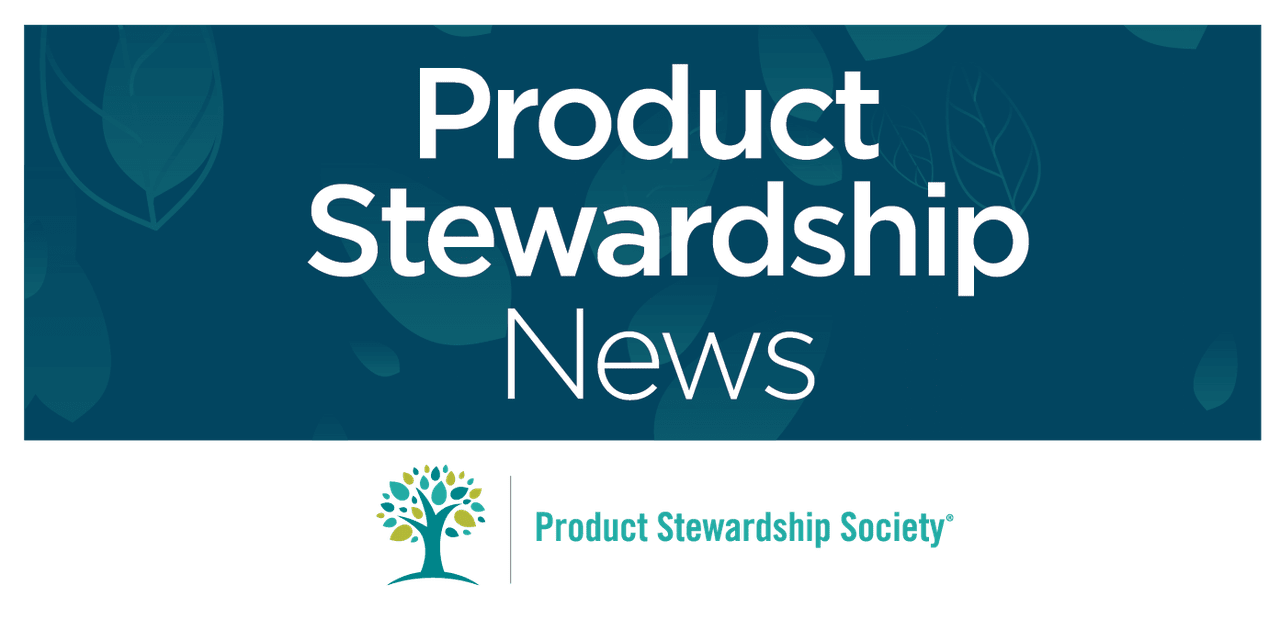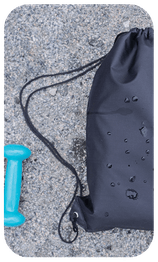



The Synergist welcomes members of the Product Stewardship Society to this special section on product stewardship. Visit the society's website for the latest news and educational opportunities.
At Covestro, a “CPPS Culture” Takes Product Stewardship to the Next Level
Since the inaugural class of Certified Professional Product Stewards was announced in December 2020, nearly 50 individuals have achieved the CPPS credential. For Lisa Marie Nespoli, a board director of the Product Stewardship Society and senior manager of Product Safety and Stewardship at Covestro, that growth illustrates how the profession’s values are positioning product stewards to drive change in their companies. At Covestro, Nespoli leads a staff of seven, three of whom have already attained the CPPS while the others plan to sit for the exam in the next two years.
“It’s not just our team that benefits” from the CPPS, Nespoli says. “It’s really the entire company, and likely the entire industry.”
Nespoli’s belief in the power of the CPPS has led her to promote what she calls a “CPPS culture” at Covestro. “To me, a CPPS culture is a place where people have the same practices, values, and shared understanding and learnings,” Nespoli says. “When you build the CPPSs in your team, this is valuable to you, to them, to the team, to the business you’re supporting, and to all their customers. It allows you not only to demonstrate your professional expertise but to help others understand what it means to be a product steward and showcase the reasons why it’s such a large part of the business’s license to operate.”
One tangible element of the CPPS culture at Covestro is a training module on the value of product stewardship to the company. The global supplier of polyurethane- and polycarbonate-based raw materials has nearly 18,000 employees—and all the U.S.-based employees take the product stewardship training every year. This requirement is one example of how product stewardship and sustainability are core principles at Covestro, Nespoli says. The training module shows how small changes to a process can have huge effects down the line, with significant ramifications for the company as a whole.
Covestro also leverages a cross-functional team that supports product stewardship throughout the enterprise. The team includes employees from plant facilities, procurement, the supply chain, legal, and other aspects of the business. Having people in so many areas who buy into the culture is a force multiplier for product stewards, Nespoli says, because “they can help explain why [product stewardship] is important to the company in a way that maybe we can’t.”
While pockets of resistance exist in every company, Nespoli says the barriers to a CPPS culture are naturally breaking down due to growing acceptance of ideas related to the circular economy and sustainability. The exponential increase in chemical regulations around the globe has helped, too, Nespoli says: “It’s an easier situation for us to explain the value of the CPPS culture.”
Although the CPPS is a new credential, it’s already had a significant effect on how companies view the value of product stewardship, according to Nespoli. Prior to the CPPS, “there was no tangible way to demonstrate what product stewardship is and that there’s real science behind it,” Nespoli says. “Having that credential really showcases the hard work, the science, the experience, and the knowledge behind the profession, and that really helps to put a name on what product stewardship is.”
Armstrong Receives Fleeger Award

Tina N. Armstrong, PhD, is the 2022 recipient of the Product Stewardship Society’s Allan K. Fleeger Distinguished Service Award. Armstrong is global sustainability director, vice president and principal scientist for Arcadis, an environmental consulting firm with a presence in more than 70 countries. Armstrong is also an adjunct professor in the master’s degree program for product stewardship at Indiana University’s Richard M. Fairbanks School of Public Health.
Named after the Society’s first president, the Fleeger Award recognizes the contributions made by a product steward to support the growth and success of the Society and the product stewardship profession. More information is available in a press release published by the Product Stewardship Society.
EPA Initiates Small Business Review for Proposed TSCA Reporting Rule
In July, EPA invited small businesses to participate in reviewing the agency’s proposed rule that would establish reporting requirements based on a chemical’s status in the risk evaluation/risk management lifecycle as established in section 6 of the Toxic Substances Control Act. According to the agency, the rule is necessary for EPA to comply with TSCA’s requirement that it always have at least 20 chemical risk evaluations of high-priority substances in progress simultaneously. According to the EPA website, the proposed rule would establish a pool of candidate chemicals to ensure enough substances are ready to be evaluated.
“The proposed rule is intended to create a framework to obtain information about potential hazards and exposure pathways related to certain chemicals, particularly occupational, environmental, and consumer exposure information,” EPA states in a press release. The rule would provide the agency with the authority to require manufacturers to provide information to EPA including a chemical’s identity, production volumes, uses, byproducts, and worker exposures. For more information, visit EPA's website.
Final Rule Requires Reporting on Five PFAS

An EPA final rule released in July adds five per- and polyfluoroalkyl substances, or PFAS, to the list of chemicals subject to reporting requirements for the agency’s Toxics Release Inventory. Data to be reported include quantities of listed chemicals that were released into the environment or managed as waste. The five PFAS are perfluorobutane sulfonic acid, also known as PFBS; perfluorobutanesulfonate; potassium perfluorobutane sulfonate; and two substances the agency identifies only by their Chemical Abstracts Service Registry Numbers: CASRN 203743-03-7 and CASRN 65104-45-2. For more information, visit EPA's website.
CPPS Exam Application Deadline: Dec. 1
Professionals seeking the Certified Professional Product Steward credential must apply by Dec. 1 to sit for the exam during the next window, which runs from Feb. 1 through March 30, 2023. Administered by the Board for Global EHS Credentialing, the CPPS exam covers four domains of product stewardship: assessment, impact analysis, and risk management; communication; data and information management; and regulatory compliance. The Product Stewardship Society offers resources for exam preparation.